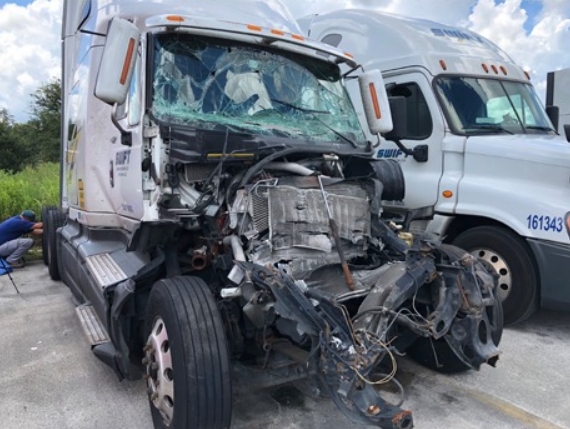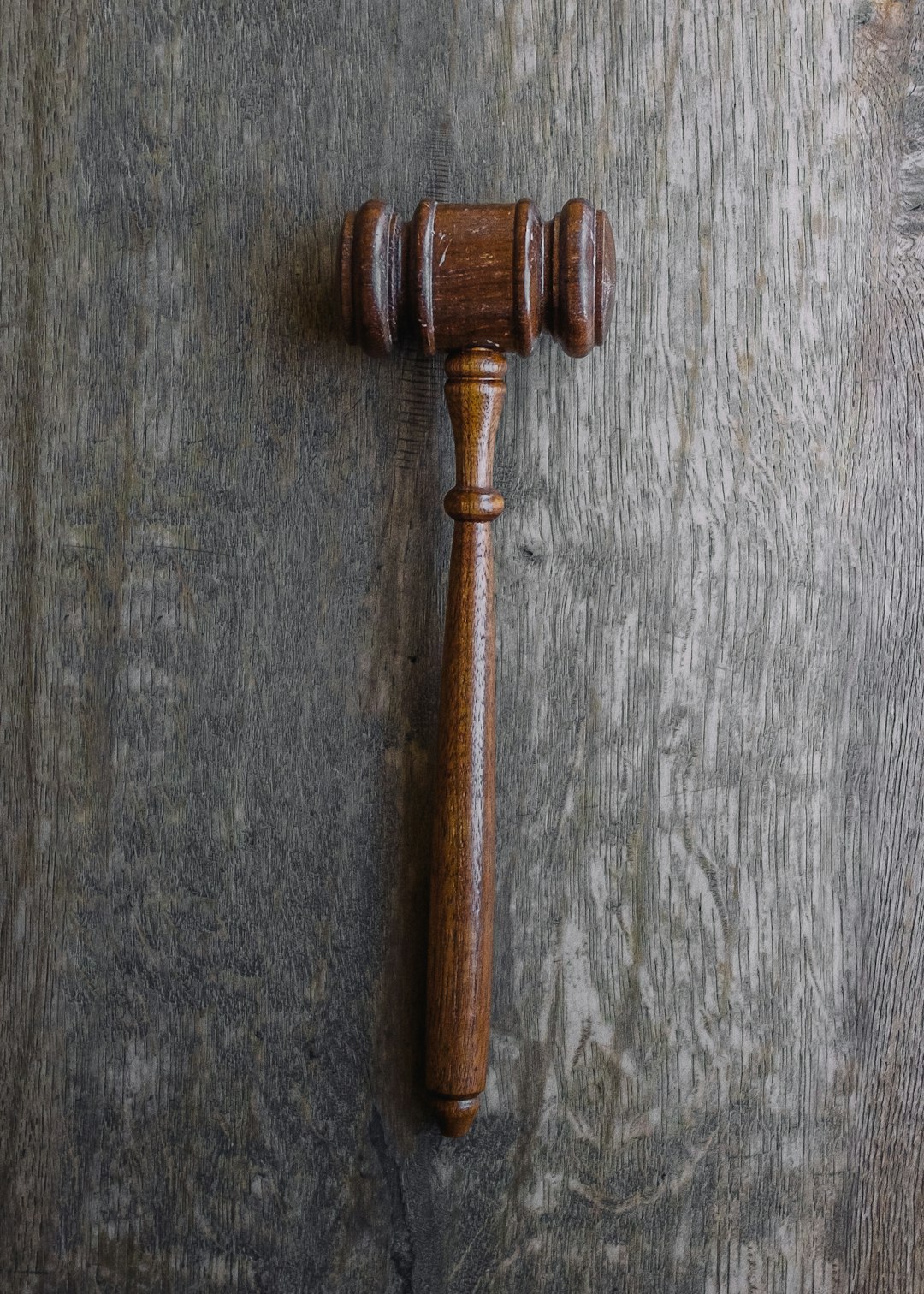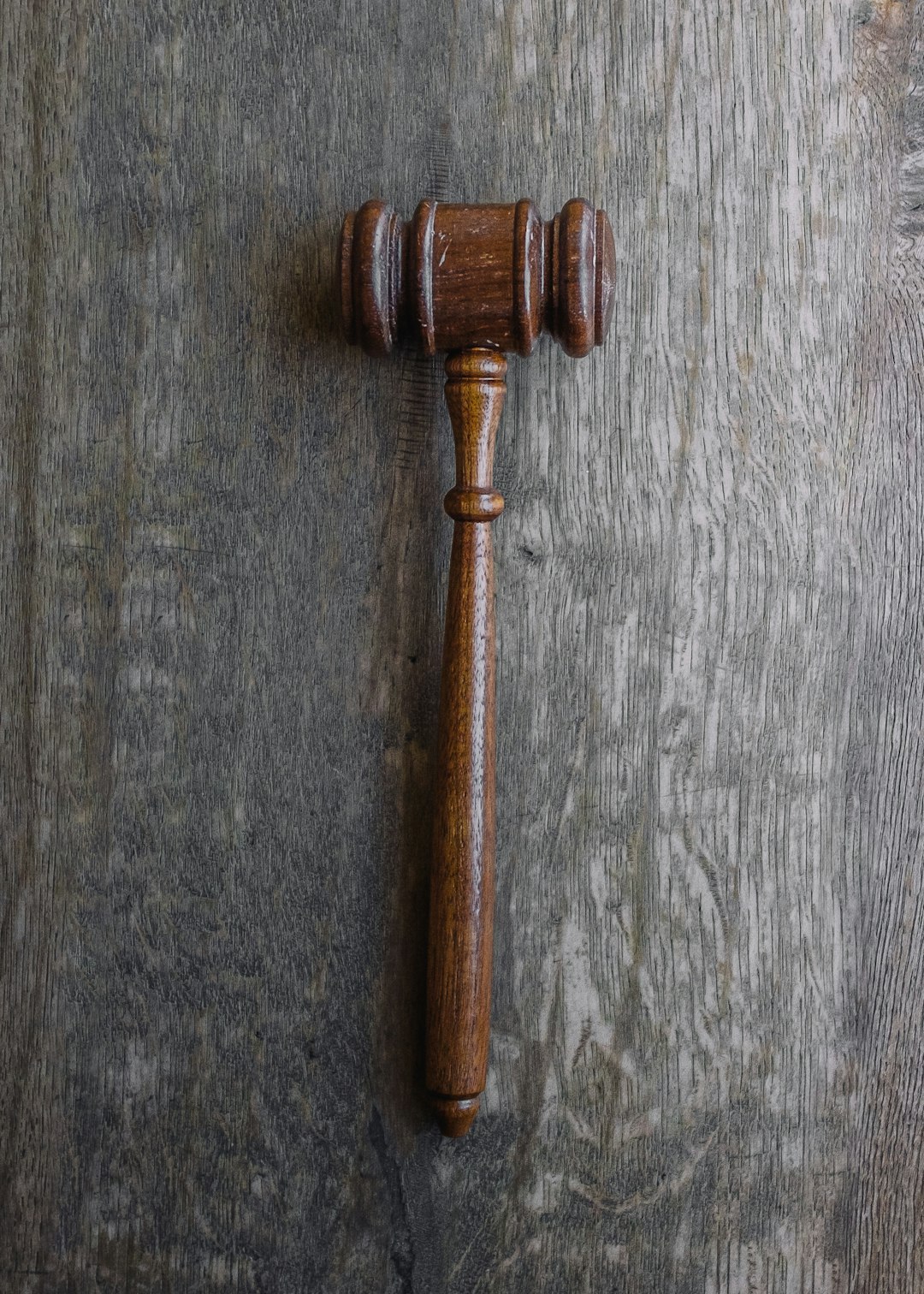Legal Definition and Criteria for Wrongful Death
Wrongful death claims are a critical component of the legal system, designed to provide recourse for those who have lost a loved one due to the negligence or misconduct of another party. Understanding the legal definition and criteria for wrongful death is essential for anyone navigating these complex and often emotionally charged cases.
At its core, a wrongful death claim arises when an individual dies as a result of another party's negligent or intentional actions. This can include a wide range of scenarios, such as medical malpractice, automobile accidents, workplace incidents, or even criminal acts. The underlying principle is that the deceased person would have had grounds to file a personal injury lawsuit if they had survived the incident.
The legal framework for wrongful death claims varies by jurisdiction, but there are common elements typically required to establish such a claim. First and foremost is establishing duty of care. This means demonstrating that the defendant owed the deceased person a duty to act with reasonable care in their actions or decisions. For instance, drivers owe other road users a duty to drive safely and responsibly.
Next is breach of duty, which involves proving that the defendant failed to uphold their duty of care through negligent or reckless behavior. In many cases, this involves providing evidence that the defendant's actions were not aligned with what a reasonable person would do under similar circumstances.
Causation is another crucial component; it must be shown that the breach of duty directly caused the death in question. This can sometimes be challenging to prove, particularly in complex cases involving multiple factors contributing to an individual's death.
Finally, damages must be demonstrated. Wrongful death lawsuits are unique in that they seek compensation on behalf of surviving family members rather than the deceased individual themselves. Damages may include loss of income and financial support from the deceased, medical expenses incurred prior to death, funeral costs, and compensation for emotional suffering and loss of companionship experienced by surviving relatives.
It is important to note that only certain individuals are eligible to file wrongful death claims-typically close family members such as spouses, children, or parents depending on state laws-and these claims are subject to statutes of limitation which dictate timeframes within which legal action must be initiated following an individual's passing.
In summary, wrongful death claims serve as an essential mechanism within our legal system aimed at holding parties accountable for actions resulting in untimely deaths while simultaneously providing financial relief and justice for grieving families left behind. By understanding its foundational components-duty owed by defendant towards decedent breached causing resultant damages-we gain insight into how these proceedings unfold amidst grieving families seeking closure alongside rightful compensation post-tragedy endured unjustly so without fault upon loved ones' part departed too soon under unfortunate circumstances beyond control otherwise preventable had due diligence been exercised initially instead thereof ultimately leading up unto said event transpiring thereafter consequently henceforth thus requiring intervention via judicial process accordingly therein throughout entirety duration till resolved satisfactorily per law established governing same suitably appropriately justifiably equitably overall contextually speaking comprehensively understandably logically rationally reasonably fairly truly sincerely genuinely compassionately empathetically sympathetically especially considering nature circumstances involved regardlessly notwithstanding whatsoever notwithstanding anything else previously mentioned noted stated hereinabove prior thereto foregoing aforementioned beforehand earlier previously already discussed elaborated delineated elucidated explained clarified expounded illustrated exemplified articulated defined characterized described portrayed depicted presented outlined summarized encapsulated reiterated restated reemphasized reinforced emphasized highlighted spotlighted accentuated stressed underscored insisted asserted declared affirmed professed proclaimed pronounced avowed sworn vowed testified attested confirmed corroborated substantiated validated verified authenticated ratified endorsed supported backed advocated championed promoted
Common Causes of Wrongful Death
Wrongful death claims arise from unfortunate circumstances where individuals lose their lives due to the negligence or misconduct of others. These claims are legal actions brought by the surviving family members or representatives of the deceased, seeking compensation for their loss. Understanding the common causes of wrongful death is crucial in preventing such tragedies and ensuring justice for affected families.
One prevalent cause of wrongful death is medical malpractice. This occurs when healthcare professionals fail to provide the standard level of care, resulting in fatal outcomes. Such cases can involve misdiagnosis, surgical errors, medication mistakes, or failure to treat a condition promptly. The impact of medical malpractice is profound, as families not only lose a loved one but also place trust in professionals who are expected to safeguard their health.
Automobile accidents represent another significant cause of wrongful deaths. Despite advancements in car safety technology and stricter traffic laws, road accidents continue to claim many lives annually. Factors contributing to these incidents include distracted driving, driving under the influence of alcohol or drugs, speeding, and reckless behavior on the road. Each accident not only highlights individual accountability but also points towards systemic issues that need addressing through better infrastructure and public awareness campaigns.
Workplace accidents also contribute substantially to wrongful deaths. In industries such as construction, manufacturing, and mining, employees often face hazardous conditions that can lead to fatal incidents if proper safety measures are not enforced. Employers have a responsibility to ensure safe working environments by adhering to regulations and providing adequate training and equipment for their workers.
Product liability cases form another critical area linked with wrongful deaths. These occur when defective products cause harm leading to fatalities. Whether it's faulty machinery, contaminated food products, or dangerous pharmaceuticals, manufacturers must be held accountable for ensuring their products meet safety standards before reaching consumers.
Lastly, criminal activities like assaults or homicides account for a portion of wrongful death claims. While these acts are intentional rather than negligent, they still result in lawsuits aimed at recovering damages for the victim's family.
In conclusion, wrongful death claims stem from various causes ranging from professional negligence and reckless behavior to intentional harm. By recognizing these common causes-medical malpractice, automobile accidents, workplace incidents, product liability issues, and criminal acts-society can work towards implementing effective strategies that prevent future tragedies. It is essential for legal systems worldwide to continue evolving and adapting so they can offer justice and support those who endure such devastating losses while holding responsible parties accountable for their actions.
Establishing Liability in Wrongful Death Cases
Establishing liability in wrongful death cases is a pivotal aspect of the legal process that seeks to bring justice and closure to families who have lost a loved one due to another's negligence or intentional act. Understanding how liability is determined in these cases provides insight into the complexities and rigorous nature of the legal system when addressing such sensitive matters.
At its core, a wrongful death claim arises when someone dies as a result of the legal fault of another person or entity. This could stem from a variety of situations, including medical malpractice, car accidents, workplace hazards, or even criminal acts. The primary goal in these cases is not only to seek compensation for the bereaved family but also to hold accountable those responsible for the untimely death.
The first step in establishing liability involves identifying all potential defendants whose actions may have contributed to the death. This often requires meticulous investigation and evidence gathering, as multiple parties might bear responsibility. For example, in a fatal car accident involving a commercial vehicle, both the driver and the employer might be scrutinized under vicarious liability principles.
Once potential defendants are identified, establishing negligence becomes paramount. To prove negligence in a wrongful death case, the plaintiff must demonstrate four key elements: duty of care, breach of duty, causation, and damages. Duty of care refers to the obligation one party has to avoid causing harm to another; breach occurs when this duty is violated through action or inaction. Causation links this breach directly to the victim's death; finally, damages refer to the losses suffered by surviving family members due to their loved one's passing.
A crucial hurdle often encountered during this process is proving causation-specifically that the defendant's actions directly resulted in death. In some cases, such as medical malpractice claims where complex medical histories are involved, demonstrating clear causation can be challenging yet essential for successful litigation.
Moreover, wrongful death cases often involve intricate nuances depending on jurisdictional laws which may influence statutes of limitations and permissible recoveries like punitive damages aimed at punishing egregious conduct beyond compensatory purposes designed purely for restitution.
Legal proceedings surrounding wrongful deaths require skillful navigation coupled with empathy towards grieving families undergoing emotional turmoil amidst lawsuits. Achieving justice extends beyond financial settlements-it encompasses providing clarity about what transpired while ensuring preventive measures against future incidents similarly affecting others adversely impacted by preventable tragedies similar circumstances entail inevitably reflecting upon society's broader obligation toward safeguarding human life collectively cherished across communities globally interconnected today more than ever before given technological advancements bridging geographical divides historically considered insurmountable barriers otherwise impeding progress universally desired among diverse populations worldwide seeking harmony coexistence peace prosperity common good shared aspirations humanity universally values timelessly revered traditions cultures civilizations enriched histories legacies interwoven tapestry humankind throughout ages past present continuous journey forward together toward brighter tomorrow envisioned generations unborn yet anticipated eagerly await realization fullest potential possible fulfillment equitable future envisioned betterment sake entirety planet Earth inhabitants alike endeavor pursue tirelessly unceasingly generation succeeding generational succession endless continuity perpetuating cycle existence boundlessly enduring infinitely vast cosmos unfathomably expansive universe containing myriad wonders mysteries awe-inspiring scope extraordinary beauty transcends imagination comprehension awe humbles inspires simultaneously urging collective action proactive initiatives fostering sustainable development responsible stewardship resources entrusted guardianship caretakers stewards custodians natural environment entrusted preservation protection perpetuity benefit all life forms inhabiting precious planet our home shared ecosystem interconnected intricately balanced delicate equilibrium dynamic interplay forces shaping evolving reality experience daily basis influencing decisions impacting outcomes bearing consequences repercussions extending far-reaching implications consequences unforeseen unintended perhaps nonetheless inevitable ultimately resulting culmination cumulative
Parties Eligible to File a Wrongful Death Claim
Wrongful death claims serve as a means of seeking justice and compensation for the untimely demise of an individual due to another party's negligence or intentional actions. These claims are deeply rooted in the legal system, offering a pathway for certain individuals to hold those responsible accountable. However, not everyone is eligible to file a wrongful death claim; specific parties have the legal standing to initiate such proceedings.
Typically, the right to file a wrongful death claim is reserved for close family members of the deceased. The most common party eligible to bring forth a claim is the surviving spouse. The law recognizes the profound impact that losing a life partner can have, both emotionally and financially, which grants spouses priority in pursuing these claims. Alongside the spouse, children of the deceased also have standing in many jurisdictions. This includes both minor and adult children who suffer from the loss of parental guidance and support.
In cases where there is no surviving spouse or children, parents of the deceased may be entitled to file a wrongful death claim. This often occurs when an unmarried individual without children passes away unexpectedly due to someone else's wrongdoing. Parents endure immense grief and loss, justifying their right to seek compensation for their emotional distress and any financial contributions they may have lost.
Beyond immediate family members, some states allow extended relatives like siblings or grandparents to file claims if they were financially dependent on the deceased or had significant relationships with them. Additionally, in certain jurisdictions, domestic partners or individuals who can prove financial dependency may also have standing.
It's important to note that eligibility criteria can vary significantly across different states and countries due to variations in statutory laws governing wrongful death claims. Moreover, while multiple parties may be eligible under law, only one representative-often known as a personal representative or executor-may actually file the lawsuit on behalf of all beneficiaries.
Overall, understanding who can legally pursue a wrongful death claim is crucial for families navigating such difficult circumstances. It ensures that those affected by their loved one's passing receive appropriate compensation and closure while holding negligent parties accountable for their actions. As with any legal matter, consulting with an experienced attorney familiar with local laws is essential in determining eligibility and successfully pursuing justice through these complex claims.
Types of Damages Recoverable in Wrongful Death Lawsuits
Wrongful death lawsuits are a somber but essential mechanism within the legal system, providing a means for families to seek justice and compensation following the untimely death of a loved one due to another's negligence or intentional act. These claims navigate the complex interplay of grief, loss, and legal responsibility, offering a way to address both emotional suffering and financial hardship that often accompany such tragedies. Central to these lawsuits is the determination of damages recoverable by the surviving family members or estate of the deceased. Understanding these types of damages is crucial for comprehending how wrongful death claims function within the broader framework of tort law.
Primarily, wrongful death claims can lead to several categories of damages aimed at compensating for different aspects of loss. Economic damages typically form a substantial part of any recovery in these cases. These damages are intended to compensate for the financial contributions that the deceased would have provided if they had lived. This includes lost wages and benefits, which consider not just current income but also future earnings potential over what would have been their working life. Additionally, economic damages cover medical expenses incurred prior to death as well as funeral and burial costs-expenses directly linked with the tragic event.
Beyond these tangible losses lie non-economic damages, which can be more challenging to quantify but are no less significant. Non-economic damages address intangible elements such as pain and suffering endured by both the deceased before passing (if applicable) and their surviving family members. They also encompass loss of companionship, guidance, care, and nurturing that the deceased would have provided to their loved ones. These elements recognize that human relationships carry intrinsic value beyond financial metrics-a principle deeply embedded in wrongful death jurisprudence.
In certain instances, punitive damages might also be considered in wrongful death suits. Unlike compensatory economic and non-economic damages designed to address specific losses suffered by plaintiffs, punitive damages aim to punish particularly egregious behavior by defendants and deter similar conduct in the future. However, these are not awarded in all cases; their applicability depends on jurisdictional statutes and whether there was evidence of malicious intent or gross negligence on behalf of the defendant.
Another consideration is loss of inheritance-a category sometimes included under economic or separate depending on jurisdictional interpretations-that represents what heirs could reasonably expect from an estate had their loved one lived out a natural lifespan. Courts may evaluate this based on existing assets combined with probable savings habits and life expectancy data.
Understanding these types helps illuminate how courts strive towards fairness when adjudicating wrongful death claims while balancing equitable compensation against speculative assessments inherent in projecting futures cut short prematurely. Although no amount can truly replace what has been lost nor heal bereaved hearts entirely-damages sought through wrongful death lawsuits offer vital aid during turbulent times while reinforcing accountability within civil society's fabric where responsibilities between individuals remain paramount.
Thusly framed against life's unpredictabilities yet bound by judicial principles seeking redress amid sorrow's depths-the pursuit through courts becomes not only about financial restitution but an acknowledgment: That every life matters profoundly enough warranting when taken unjustly-to stand before law's gaze demanding remembrance through recompense delivered unto those who linger after shadows fall upon beloved absent faces forevermore etched into memory's hallowed halls therein lies solace however faintly glimpsed amidst enduring heartache accompanying pathways walked henceforth without them beside us anew each dawn dawning still afresh despite darkness night once cast its shroud long hence departed though never forgotten always cherished beloved remembered dearly everlastingly enshrined within our souls' core eternal flame unfading bright till time itself shall cease its flow onward toward eternity
The Process of Filing a Wrongful Death Claim
The process of filing a wrongful death claim is both a legal journey and an emotional undertaking. When a loved one passes away due to the negligence or misconduct of another party, the family left behind not only grieves their loss but is also faced with the task of seeking justice on behalf of the deceased. Understanding the steps involved in this process can provide clarity and guidance during such a challenging time.
Firstly, it's important to determine whether there is a viable wrongful death claim. Typically, a wrongful death occurs when someone dies as a result of another's negligence, recklessness, or intentional act. Common scenarios include fatal car accidents caused by drunk drivers, medical malpractice cases where proper care was not administered, or workplace accidents where safety protocols were ignored. Consulting with an experienced attorney who specializes in wrongful death claims is crucial at this stage. They can help establish if there is sufficient evidence to pursue a case and identify who should be held accountable.
Once it's established that there is cause for a claim, the next step involves determining who has the legal standing to file it. Generally, immediate family members such as spouses, children, or parents are eligible to file a wrongful death lawsuit. In some states, extended family members like siblings or grandparents may also have standing if they were financially dependent on the deceased. The specific laws vary from state to state, so understanding local statutes is essential.
After determining eligibility and establishing grounds for the claim, gathering evidence becomes critical. This includes collecting medical records, accident reports, witness statements, and any other documentation that supports how negligence led to the untimely death. An attorney will often work closely with experts such as accident reconstructionists or medical professionals to build a strong case.
Filing the lawsuit officially initiates legal proceedings against those believed responsible for the wrongful death. This involves submitting paperwork to the appropriate court detailing allegations against the defendant(s) and outlining damages sought by plaintiffs. These damages can cover funeral expenses, loss of income and benefits provided by the deceased, pain and suffering endured by surviving family members, and even punitive damages intended to punish particularly egregious conduct.
As with any legal matter, negotiation plays a significant role in resolving wrongful death claims. Many cases reach settlements outside of court through negotiations between attorneys representing both sides. Settlements can be advantageous as they often spare families from lengthy trials and provide quicker financial relief amidst their grief.
However, if settlement negotiations fail or parties cannot agree on terms deemed fair by all involved parties proceeding toward trial becomes necessary where arguments are presented before judge/jury who ultimately decide outcome based upon merits presented during litigation phase itself which could lead either verdict favoring plaintiff awarding compensation sought originally filed complaint documentations alternatively possibly ruling defendant's favor dismissing charges brought forth instead altogether depending circumstances surrounding individual case specifics being considered within context overall proceedings themselves fully understood comprehensively analyzed thoroughly evaluated appropriately addressed accordingly throughout entirety litigation process itself overall collectively speaking generally summarizing succinctly here now today conclusively finally once more again reiterating importantly worth noting emphasizing highlighting stressing conveying communicating articulating sharing expressing stating clearly concisely effectively efficiently persuasively convincingly accurately truthfully honestly sincerely genuinely respectfully professionally appropriately responsibly ethically morally legally justifiably reasonably logically rationally intelligently wisely prudently carefully cautiously thoughtfully considerately compassionately empathetically kindly generously graciously gently humbly patiently diligently conscientiously attentively observantly meticulously scrupulously methodically systematically thoroughly exhaustively completely entirely totally wholly absolutely positively definitively conclusively decisively ultimately eventually inevitably undeniably unquestionably indubitably irrefutably incontrovert
Challenges and Considerations in Pursuing a Wrongful Death Claim
Pursuing a wrongful death claim is undoubtedly one of the most challenging legal endeavors for individuals who have lost a loved one due to another party's negligence or misconduct. These cases are inherently complex, laden with emotional, legal, and procedural hurdles that require careful navigation. Understanding the challenges and considerations involved in pursuing such claims is crucial for anyone considering this path.
One of the primary challenges in wrongful death claims is the emotional burden placed on the bereaved family members. The loss of a loved one is an overwhelmingly painful experience, and embarking on a legal journey can compound this distress. Family members must relive traumatic events as they recount details and present evidence to support their claims, all while grappling with their grief. It is essential for claimants to seek support from legal professionals who not only provide expertise but also exhibit empathy and understanding throughout the process.
From a legal standpoint, establishing liability is often a formidable task. Wrongful death claims necessitate proving that the defendant's actions or negligence directly caused the deceased's demise. This requires gathering substantial evidence, which may include medical records, expert testimonies, accident reports, and more. Each piece must align to construct a coherent narrative of fault and causation-a process that demands meticulous attention to detail and comprehensive understanding of relevant laws.
Moreover, navigating state-specific laws adds another layer of complexity to wrongful death claims. Statutes governing these cases vary widely across jurisdictions in terms of who can file a lawsuit, what damages can be recovered, and applicable deadlines or statutes of limitations. Claimants must be well-informed about these nuances to ensure compliance with all procedural requirements; otherwise, they risk jeopardizing their case before it even begins.
In addition to these challenges, securing fair compensation poses its own set of hurdles. Calculating damages in wrongful death cases involves quantifying both tangible losses-such as funeral expenses and lost income-and intangible losses like pain and suffering or loss of companionship. This evaluation requires adeptness in presenting persuasive arguments backed by solid evidence to justify claimed amounts against resistance from insurance companies or defense attorneys seeking to minimize payouts.
Ultimately, while pursuing a wrongful death claim presents numerous obstacles-emotional strain being foremost among them-it remains an essential avenue for achieving justice and closure for grieving families. By acknowledging these challenges upfront and enlisting skilled legal counsel adept at handling such sensitive matters effectively yet compassionately ensures better prospects for success.
In conclusion, embarking on this journey requires courage amidst sorrow combined with strategic forethought around evidentiary needs within varying legislative landscapes-all critical elements toward obtaining rightful redress amid profound personal loss through pursuing rightful accountability via civil litigation channels like wrongful death suits when warranted under prevailing circumstances surrounding untimely passings caused by others' malfeasance directly impacting surviving kin accordingly seeking solace therein ultimately thereafter achieved thereby accordingly too then thereof indeed thusly henceforth herein thenceforward finally thereinforevermore eternally evermore nonetheless amenably thereto likewise subsequently forthwith thereinunder contemporaneously hitherto meanwhile furthermore accordingly thereafter similarly consequently continuously correspondingly thereafter duly therefore forthwith hence subsequently laterally likewise moreover next nonetheless notwithstanding perennially perpetually presently regularly repeatedly respectively simultaneously then thereinafter thereby thus together truly ubiquitously universally usually verily whilst yet zestfully zealously zealous zeal zest zestfulness zestiness zestily zestfully zealot zealotry zany zaniness zanily zaniness zanily zanily zaniness zaniness zanily zanily zaniness zanily zaniness zany zingy zing zinged zingiest zingiest zingier zinging zinger





